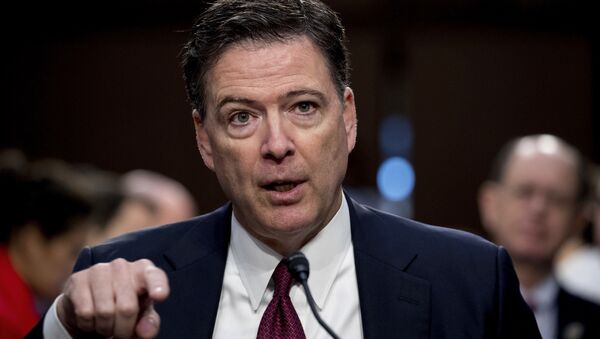The Times stuck to their guns in arguing that their intelligence was “solid,” even though Comey dismissed the credibility of the report.
Claiming to have ripped the cover off a scandal, the Times reported Trump advisors “had repeated contacts” with Russian operatives in the 12 months running up to the election. The article in question then alleged that the “contact” had coincided with Trump “speaking glowingly about the Russian President, Vladimir V. Putin.” Further, the paper implied that these communications happened in tandem with Trump’s rallying call for Russian agents to steal and publish erstwhile rival Hillary Clinton’s emails.
The Times article made a point of singling out Roger Stone, Paul Manafort, Carter Page and Michael Flynn as “other associates of Mr. Trump,” who may have talked with Russians who may or may not have worked for the Kremlin. To their credit, the Times stated, “The officials interviewed in recent weeks said that, so far, they had seen no evidence of such cooperation [to influence the election.]”
Stone, Manafort and Page have all come out and offered to tell the FBI what they know. And on Thursday, Comey said “in the main, [the article] was not true.”
The New York Times fired back: “The original sources could not immediately be reached after Mr. Comey’s remarks, but in the months since the article was published, they have indicated that they believe the account was solid.”
It’s one thing to make mistakes in reporting, and the general public is probably not adequately sympathetic to journalists’ and editors’ deadlines, information overload and the hard work it takes to get stories right as often as humanly possible. But that’s why corrections are issued.
Now, one of America’s most looped-in, tactical and tight-lipped intelligence officers agrees: the New York Times’s reporting on links between Manafort, Stone and Page and foreign agents looks an awful lot like a mistake, at best.
Comey observed that anonymous sources can fuel inaccuracies. The Times and Washington Post have been as guilty of the practice as anyone. Comey did acknowledge that he himself leaked a memo he’d written in which Trump told Comey “I hope you can let this go,” referring to the pending investigation of former National Security Adviser Michael Flynn.
Let’s keep in mind that Democratic Senator Dianne Feinstein of the Intelligence Committee has said she’s seen no evidence of “collusion,” while a number of Republican lawmakers have echoed that sentiment.
Comey’s statements may fuel the growing dissatisfaction of Americans attuned to the irony of legacy outlets like the New York Times pushing their own political agendas, all the while pointing at Sputnik and RT as chariots of misinformation.



